This article has been translated by AI.
The “Tigris River Protectors Association” organizes the annual “Iraqi Water Week” event, held each year from March 14th to March 22nd. This event aims to unite individuals, organizations, and communities across Iraq and beyond to address critical issues related to water and promote sustainable solutions.
This year’s event focuses on the theme of “Alternatives and Sustainable Solutions,” calling on governments to reassess current plans supporting the environment and water sector, recognizing the urgent need for sustainable practices and policies.
Given the belief of the “Tigris River Protectors” in the effectiveness and success of rainwater harvesting projects in contributing to solving the water crisis and conserving water resources within Iraq, on the evening of Sunday, March 24, 2024, the association organized an online session titled “Rainwater Harvesting and Agricultural Protection.” This session aimed to shed light on rainwater harvesting projects as an alternative solution that may enhance water sustainability in Iraq.
The session hosted Eng. Bahaa Waad, an agricultural engineer specialized in livelihood development from the Northern Technical University, and Dr. Heba Mohamed Talib, a doctoral student in forestry sciences and civil environmental engineering and a member of the steering committee of the “Save the Tigris River” Foundation in the Netherlands. The session was attended by environmental activists and water stakeholders from various provinces, through the Zoom platform and live streaming on Facebook.
The session began with a discussion on the Syrian experience with rainwater harvesting projects, where Dr. Heba highlighted Syria’s agricultural nature but recent severe droughts have led to significant losses in farms and livestock, agricultural sector destruction, increased displacement due to climate change and economic instability. Therefore, the alternative was to resort to green agriculture techniques. She discussed recent research conducted with the “Save the Tigris River” Foundation in the Netherlands on rainwater harvesting projects, which serve as effective alternatives to improve water management, protect biodiversity, and support farmers’ resilience by collecting and managing rainwater to support the ecosystem, protect soil, and enhance farmers’ resilience.
Regarding the feasibility of implementing rainwater harvesting projects in Iraq, Eng. Bahaa discussed a problem in water resource management within the country. Despite presenting over 40 research papers on water conservation by the Northern Technical University and the University of Mosul, governmental authorities, specifically the Ministry of Water Resources, prohibit rainwater harvesting because they consider rainwater a right for all provinces. He pointed out that Iraq has the expertise to overcome the current crisis and develop the existing situation, but the complexity of the problems and governmental procedures pose obstacles to work.
As giant dams are always prioritized in solving the water crisis, Dr. Heba discussed the difference between rainwater harvesting projects and large dams, explaining that there is a significant difference in selecting suitable sites for each, providing water and sustainability, in addition to the cost, impact on the ecosystem, and social and economic benefits. She emphasized that rainwater harvesting projects bring much more benefits than large dams.
Regarding the agricultural situation in Iraq, Eng. Bahaa talked about the problems facing farmers in Nineveh and how academic institutions, in collaboration with agricultural institutions, educate farmers to adopt successful practices and utilize production methods that can address climate change risks and reduce losses. These institutions provide successful studies and applied research that have helped farmers in soil preparation, seed testing, fertilization timing and quantities, as well as using modern irrigation methods and new germination processes, among other sustainable practices.
Regarding the question “Is the current amount of rainfall encouraging for the implementation of rainwater harvesting projects amidst the drought crisis and climate change we are experiencing?” Dr. Heba clarified that the problem is not in the amount of rainfall, but in water management and irrigation methods. Despite the decline in rainfall rates and the drought crisis, rainwater harvesting projects have proven successful because they are designed to conserve rainwater and use it during the dry season in arid and semi-arid areas. She pointed out that all studies on rainwater harvesting projects confirm their effectiveness in contributing to water supply.
In conclusion, she emphasized the importance of rainwater harvesting in empowering communities and enhancing social cohesion by improving access to water and boosting local economies due to increased water availability, thus supporting sustainable agriculture and increasing agricultural productivity. By reducing dependence on groundwater and preserving it, reducing surface runoff, and soil erosion, rainwater harvesting projects contribute to environmental sustainability, benefiting countries.
The full session can be listened to here.
This session is part of the activities of “Iraqi Water Week” organized by the “Tigris River Protectors Association” to highlight environmental and water issues for cities along the Tigris and Euphrates rivers.
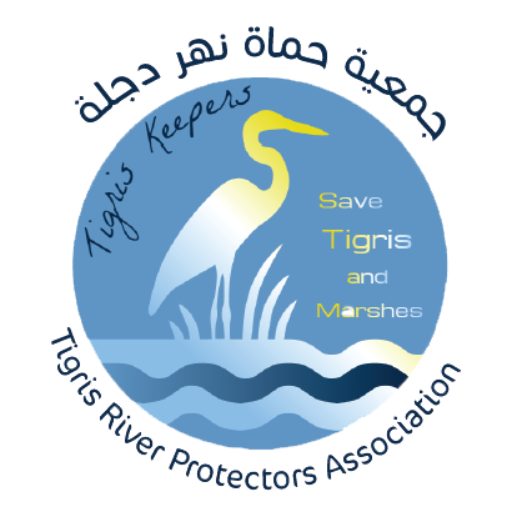
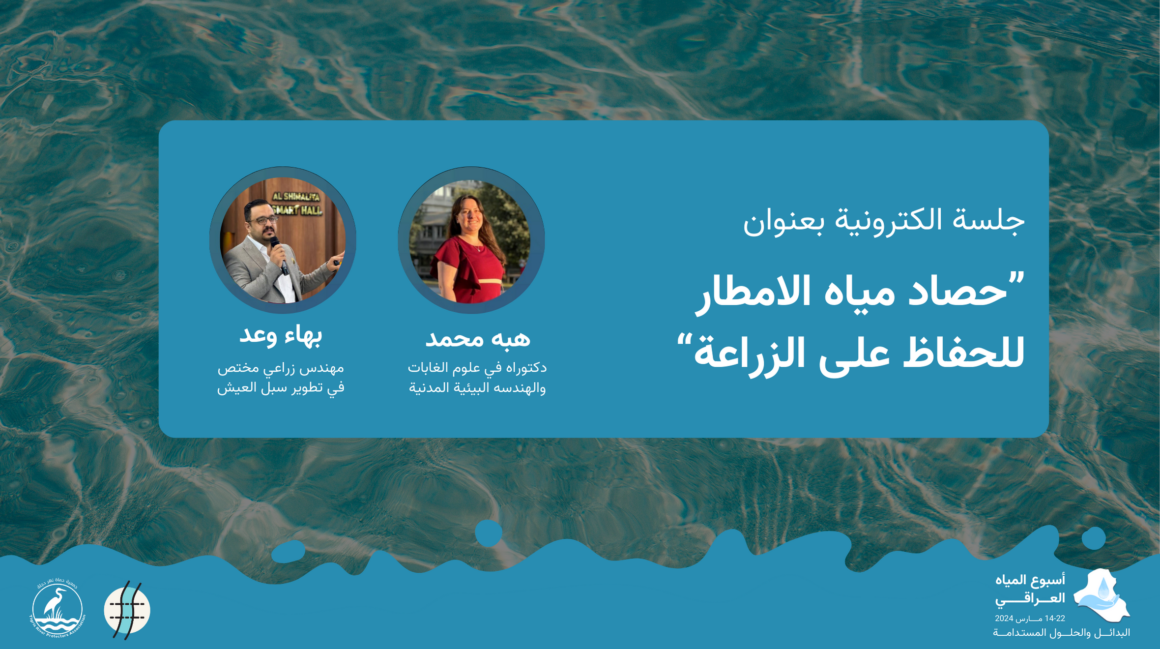
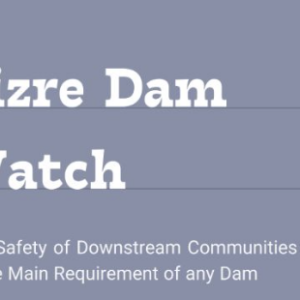
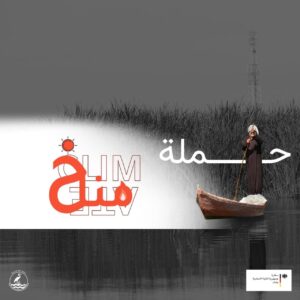
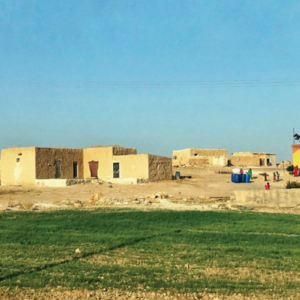
Leave a Reply